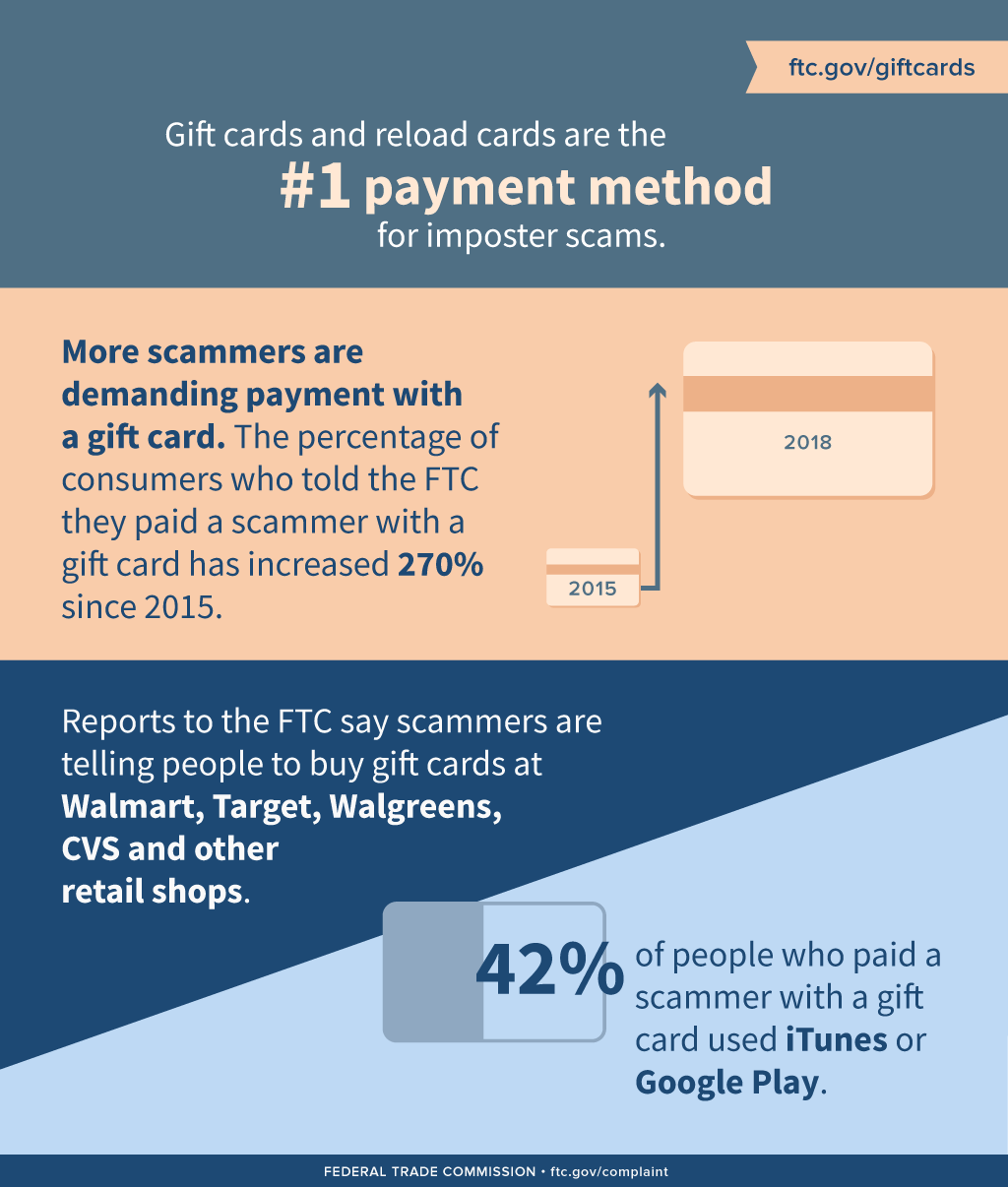Gift cards are a great way to give a gift. But did you know they are also a scammer’s favorite way to steal money? According to the FTC’s new Data Spotlight, more scammers are demanding payment with a gift card than ever before – a whopping 270 percent increase since 2015.
Gift cards are for gifts, not for payments. If someone calls with urgent news or a convincing story and then pressures you to pay them by buying a gift card, like an iTunes or Google Play card, and then giving them the codes on the back of the card – stop. It’s a scam.
Gift cards are the number one payment method that imposters demand. They might pose as IRS officials and say you’re in trouble for not paying taxes; or a family member with an emergency; or a public utility company threatening to shut off your water; or even a servicemember selling something before deployment. Or they might call with great news – you’ve won a contest or a prize! But to get it, you need to pay fees with a gift card. Scammers will say anything to get your money. And they know how to play into your fears, hopes, or sympathies. They like gift cards because, once they’ve got the code on the back, the money is gone and almost impossible to trace. But knowing how these scams work can help you avoid them, and you can help even more by passing on the information to people you know.
(View or share the YouTube version of this video.)
If you paid a scammer with a gift card, report it as soon as possible. Call the card company and tell them the gift card was used in a scam. Here is contact information for some of the gift card companies that scammers use most often. Then, tell the FTC about it – or any other scam – at ftc.gov/complaint. Your reports may help law enforcement agencies launch investigations that could stop imposters and other fraudsters in their tracks.
Report Scams
Amazon
- Call 1 (888) 280-4331
- Learn about about Amazon gift card scams here.
Google Play
- Call 1 (855) 466-4438
- Report gift card scams online here.
- Learn about Google Play gift card scams here.
iTunes
- Call 1 (800) 275-2273 then press “6” for other, then say “operator” to be connected to a live representative.
- Learn about iTunes gift card scams and how to report them here.
Steam
MoneyPak
- If you have a Steam account, you can report gift card scams online here.
- Learn about Steam gift card scams here.
- Call 1 (866) 795-7969
- Report a MoneyPak card scam online here.
